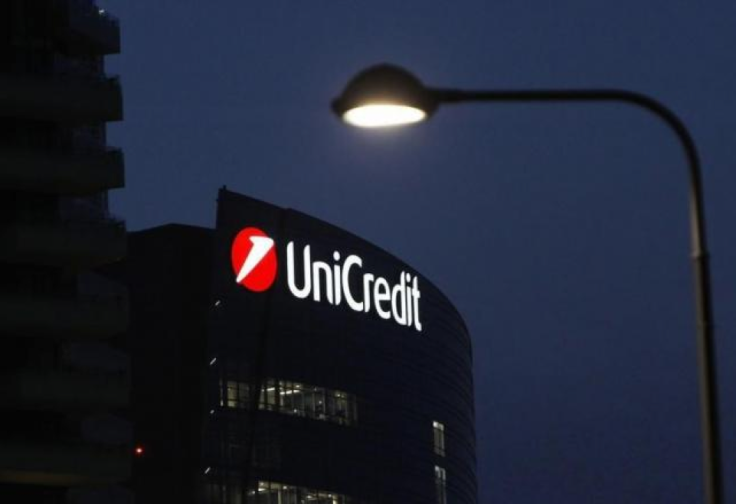Italy's Largest Bank In Trouble? UniCredit To Layoff 8,000 Jobs Amid Western Europe Struggles

Banking unions in Italy have asked the government to prevent implementation of the 8,000 job cuts planned by the country’s biggest lender, UniCredit.
Federazione Autonoma Bancari Italiani, Italy’s largest banking union, criticized the restructuring plan announced by UniCredit CEO Jean Pierre Mustier on Tuesday.
Lando Maria Sileoni, the chief of the union, has asked politicians to intervene in the “interests of the country.” Sileoni added UniCredit workers “have already made many sacrifices.”
Massimo Masi, the head of the UIL Credito Esattorie e Assicurazioni union, called the job cuts, which will impact about 9% of the bank’s workforce, “unacceptable.”
“We are ready for any initiative against this plan and we ask the government to take a strong stance.” Masi added.
Under UniCredit’s restructuring plan, it will also close 500 branches by 2023 in a step to cut 1 billion euros ($1.11 billion) in expenses in western Europe.
Banking unions expect 5,500 of the 8,000 job cuts and 450 of the branch closures will take place in Italy
Aside from the job cull and branch shutdowns, UniCredit will seek regulatory approval to enact a 2 billion euro ($2.2 billion) share buyback.
Overall, including dividends, the bank expects to return 8 billion euros ($8.8 billion) to shareholders by 2023.
Mustier said he is focusing on capital returns and organic growth, not mergers.
“We prefer share buybacks to M&A, ” Mustier said. “We might look at small bolt-on acquisitions, most likely in central and eastern Europe where we have a growth plan, but most likely nothing in western Europe.”
If the European Central Bank approves UniCredit’s share repurchase plan, it could set a precedent and suggest that the European banking sector might be recovering.
Magdalena Stoklosa, head of European bank research at Morgan Stanley, told the Financial Times the real "significance of a large, liquid eurozone bank being able to buy back shares is the final approval on the regulatory side that signals the end of the balance sheet clean-up and rehabilitation period.”
As with its European peers, UniCredit has struggled with low rates, sluggish economic growth, bad loans from the financial crisis, tighter regulations and competition from U.S. banks.
UniCredit has also been disposing of other assets. During the weekend the bank reduced its stake in Turkish bank Yapi ve Kredi Bankasi AS to less than 32% from 41% by selling it to Koc Holding of Turkey. In recent years UniCredit has sold off Polish lender Bank Pekao SA and asset management firm Pioneer Investments. Earlier this year, UniCredit unloaded its holdings in Italy’s Banca Fineco and in Mediobanca SpA.
Through just the first three quarters of this year, banks across the world laid off nearly 60,000 people, with about 90% of the total layoffs occurring in Europe.
© Copyright IBTimes 2024. All rights reserved.





















